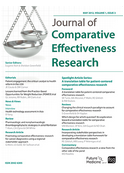 Strategic Targeting of Registries and International Database of Excellence (STRIDE) is an ongoing, multicenter registry providing real-world evidence regarding ataluren use in patients with nonsense mutation Duchenne muscular dystrophy (nmDMD).
Strategic Targeting of Registries and International Database of Excellence (STRIDE) is an ongoing, multicenter registry providing real-world evidence regarding ataluren use in patients with nonsense mutation Duchenne muscular dystrophy (nmDMD).
The authors examined the effectiveness of ataluren + standard of care (SoC) in the registry versus SoC alone in the Cooperative International Neuromuscular Research Group (CINRG) Duchenne Natural History Study (DNHS), DMD genotype-phenotype/-ataluren benefit correlations and ataluren safety.
Propensity score matching was performed to identify STRIDE and CINRG DNHS patients who were comparable in established disease progression predictors (registry cut-off date, 9 July 2018).
Kaplan-Meier analyses demonstrated that ataluren + SoC significantly delayed age at loss of ambulation and age at worsening performance in timed function tests versus SoC alone. There were no DMD genotype-phenotype/ataluren benefit correlations. Ataluren was well tolerated.
These results indicate that ataluren + SoC delays functional milestones of DMD progression in patients with nmDMD in routine clinical practice.
ClinicalTrials.gov identifier: NCT02369731.
